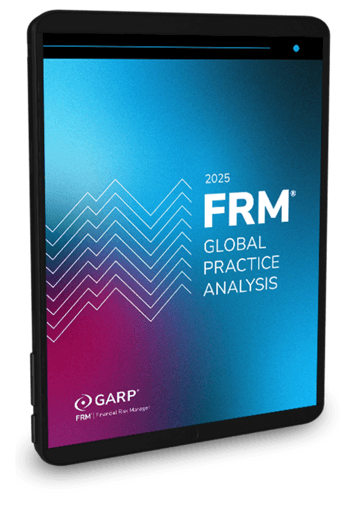2025 FRM® Global Practice Analysis Report
How do financial risk managers provide value for their organizations in today’s financial risk environment?
February 24, 2025
What do financial risk managers need to know to effectively identify, analyze, and mitigate financial risk, and what should financial risk managers focus on to advance and enhance their careers through professional development and education?
To answer these questions, GARP conducted its 2025 Global Practice Analysis. Through data compiled in 2024, GARP’s study explores the knowledge and skills financial risk managers need to provide value to their organizations. Top takeaways from the report include:
- Quantitative skills and abilities are a starting point for financial risk managers, but practitioners need more than knowledge of models and methods
- 40% of financial risk managers have responsibilities related to climate risk.
- 42% of financial risk managers view AI/machine learning as a key area for continuing education.
- 55% of financial risk managers spend at least half of their time performing risk management tasks.

Want to learn more about today's financial risk managers?
Download GARP's full 2025 FRM Global Practice Analysis report now!